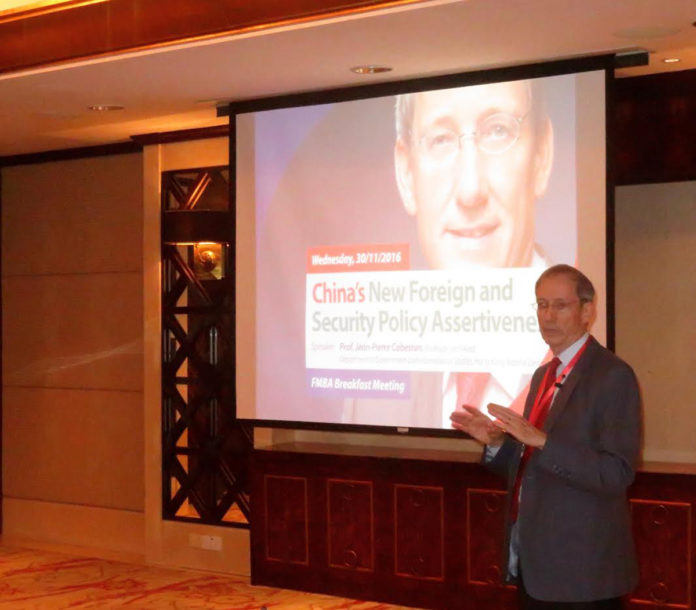Despite the anti-corruption and anti-gaming policies enforced by the Chinese central government, it is still in Beijing’s interests to guarantee the stability of the MSAR economy by maintaining visitor numbers to the city, reckons Jean-Pierre Cabestan, the Head of Department of Government and International Studies at Hong Kong Baptist University.
“Since Xi Jinping took over, Macau’s gross gaming revenues have clearly fallen but at the same time it is in China’s interests to keep Macau afloat and prosperous, making sure there are enough tourists coming,” Cabestan told Business Daily following a breakfast meeting of The France Macau Business Association (FMBA) yesterday.
“Of course [the central government is] cracking down on corruption and local officials using state money for gambling but at the same time they will continue to allow a large number of tourists to come to Macau in order to keep the economy in good shape,” he said.
One Road, One Belt of debt
Meanwhile, questioned about the practical effects of Beijing-backed initiatives on Macau – such as promoting the city as a Sino-Luso platform and the One Belt, One Road policy – the academic pointed out that the effectiveness of these policies might be affected by the current debts owed by developing countries to China.
“Everybody is part of the One Belt, One Road, and Macau, having a connection to Lusophone countries such as Brazil, Angola and Mozambique can play a role. The problem is that the policy tends to include the whole world so it’s kind of diluted . . . the other problem being that China might’ve been too generous, with now being more keen on returning its investment on developing countries to make sure the money is not lost.”
According to the professor, the current Chinese economic slowdown can affect the scope of the ‘One Belt, One Road’ policy, as state-owned companies seek to become less dependent upon the state’s coffers and start demanding returns from investments in developing countries.
“China committed US$46 billion (MOP367.4 billion) to Pakistan alone just for this corridor through the country; it’s a big deal whether Pakistan can pay it back,” he said. “Venezuela has a debt of US$60 billion; Equator is the highest per capita debtor, with US$10 billion, and in Africa you have a number of countries like Mozambique and Angola where China has been involved in many infrastructure projects. If you add up all those commitments you [arrive at] almost US$1 trillion in investment.”
The professor of International Studies was the speaker at yesterday’s FMBA meeting on ‘China’s New Foreign and Security Policy Assertiveness.’
























